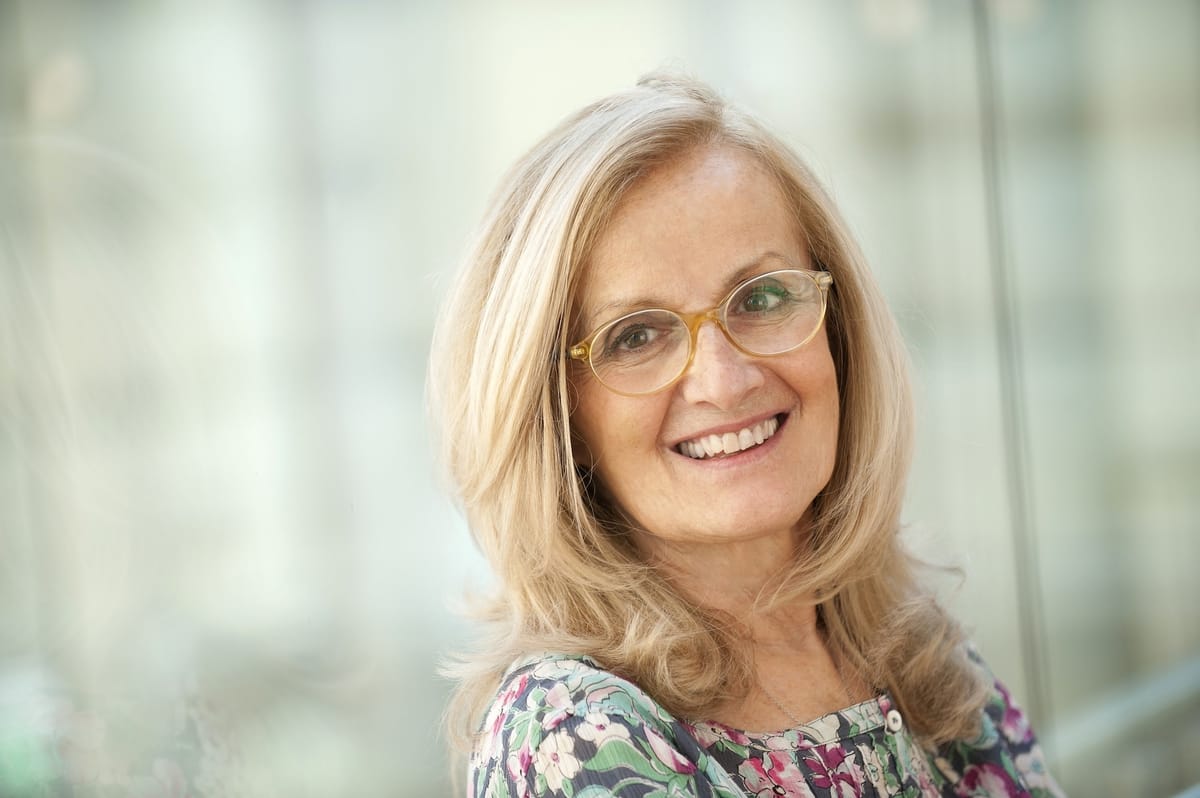Carlina Rinaldi: In Memoriam

A giant in the field of early childhood education has died. Carlina Rinaldi influenced educators around the world through her lectures, writings, and how she interacted with people. Indeed, Carlina influenced people who do not even know that she influenced them. As a leading theorist of the Reggio Approach, she changed how young children through graduate students are educated by bringing forward the practices of documentation, group learning, inquiry based curriculum, and more. Carlina was a steadfast defender of the rights of children and an eloquent proponent of democratic education. Her voice will be sorely missed.
The kindness of listening
I will always remember my first meeting with Carlina. It was November 1999. I was in Reggio Emilia, Italy with Mara Krechevsky and Steve Seidel. As the newest and most junior member of the Project Zero half of the Making Learning Visible research team, I was visiting a city that is a Mecca to early childhood educators. I was in awe, about to meet people whose writings I had read carefully and long admired.
Steve, Mara, and I arrived at the Villetta School for our initial conversations of the week and my meeting of the Reggio half of the research team. Introductions were made and Carlina Rinaldi sought me out. She asked about myself and my family. I shared how my son Josiah, new to kindergarten, was coming home each day with a full lunch box, the result of the 15 minutes he had for both eating and recess (a result of a school reform initiative in the United States).
Our conversation ended as the research team began its deliberations. My thoughts of kindergarten and lunch faded as we became deeply immersed in conversation. Towards the end of the meeting, as the conversation paused, Carlina came over to me.
“I want to show you something magical,” she said.
She brought me to the lunch room. Children from the oldest class were setting out plates, real glasses, and cutlery on three tables. Soon other children arrived and were seated. Without adult supervision the children served themselves, talked, laughed, and ate an amount of food over 45 minutes that would have made my grandmother happy. I did not have this language back then, but now I would say I was really seen by Carlina. She realized that showing me lunch time would be meaningful. Through this act of kindness I felt welcomed into the research group.
I have other precious memories of Carlina. Of the time she entirely shifted how I think about democratic education during a conversation with Steve Seidel. Carlina said, “You Americans think educating for democracy is just about kids voting. It is about dialogue and exchange and learning how to be in a community.” Or the time, on one of her visits to Cambridge, she and I beat Mara and Melissa Rivard in a foosball game. But it is the first encounter, the one in the Villetta School, that I hold most dear.
Pedagogy of Listening
It is not surprising that Carlina, the author of the Pedagogy of Listening, was an excellent listener. While Carlina wrote extensively, it is this essay that is perhaps the most beloved of her canon.
The Pedagogy of Listening begins with a question: How can we define the term listening?
Carlina’s first answer feels spiritual in nature:
Listening as sensitivity to the patterns that connect, to that which connects us to others; abandoning ourselves to the conviction that our understanding and our own being are but small parts of a broader, integrated knowledge that holds the universe together.
The essay continues with additional takes on listening and then notes, “Listening is not easy.” But in the next paragraph, in a passage connected to our first meeting, she explains that, listening takes the individual out of anonymity and gives one visibility.
Let me share one more passage from the essay, one connected directly to the educational project Carlina advocated for:
[Listening] is a difficult path that requires efforts, energies, hard work and sometimes suffering, but it also offers wonder, amazement, joy, enthusiasm and passion. It is a path that takes time, time that children have and adults often do not have or do not want to have. This is what a school should be: first and foremost, a context of multiple listening. This context of multiple listening, involving the teachers but also the group of children and each child, all of whom can listen to others and listen to themselves, overturns the teaching—learning relationship. This overturning shifts the focus to learning; that is, to children’s self-learning and the learning achieved by the group of children and adults together.
I am grateful Carlina took the time to listen to me and made the effort to teach us all about listening.
Waves of Kindness
The last time I saw Carlina in person was in the spring of 2022 in Billund Denmark when we attended a Lego Foundation conference. Over coffee I told her of my plans to return to teaching young children. Hearing the news she broke into a huge smile. Carlina understood this career move was not a retirement from research, but a step into practitioner research, an intellectually rigorous affair. It also involves physical and emotional challenges. Perhaps a reason why practitioner research, such as that conducted in Reggio, is so rich is that it brings together the mind, body, and soul.
Later that day Carlina and Mitch Resnick took the stage at the conference. Their conversation began with Mitch telling a story of a project titled “Waves of Kindness”, inspired by a Ukrainian educator who contacted him shortly after the Russian invasion of her country. The result was thousands of children creating Scratch projects that told of strategies for spreading kindness. Carlina responded by noting how we adults can learn from children; their simple acts inspiring ripples and even waves of kindness. She also talked about how in Reggio they believe that their children cannot be happy if other children around the world are unhappy. Hence her and her colleagues' commitment to sharing the ideas created by their educational experiment far beyond the boundaries of their city. Like so many of her ideas, Carlina’s message that afternoon–one of solidarity and kindness–is timeless and, at this moment, incredibly timely.
If you enjoyed this essay, consider sharing it with a colleague or friend. Perhaps you will introduce someone to Carlina Rinaldi and her essay on listening.
